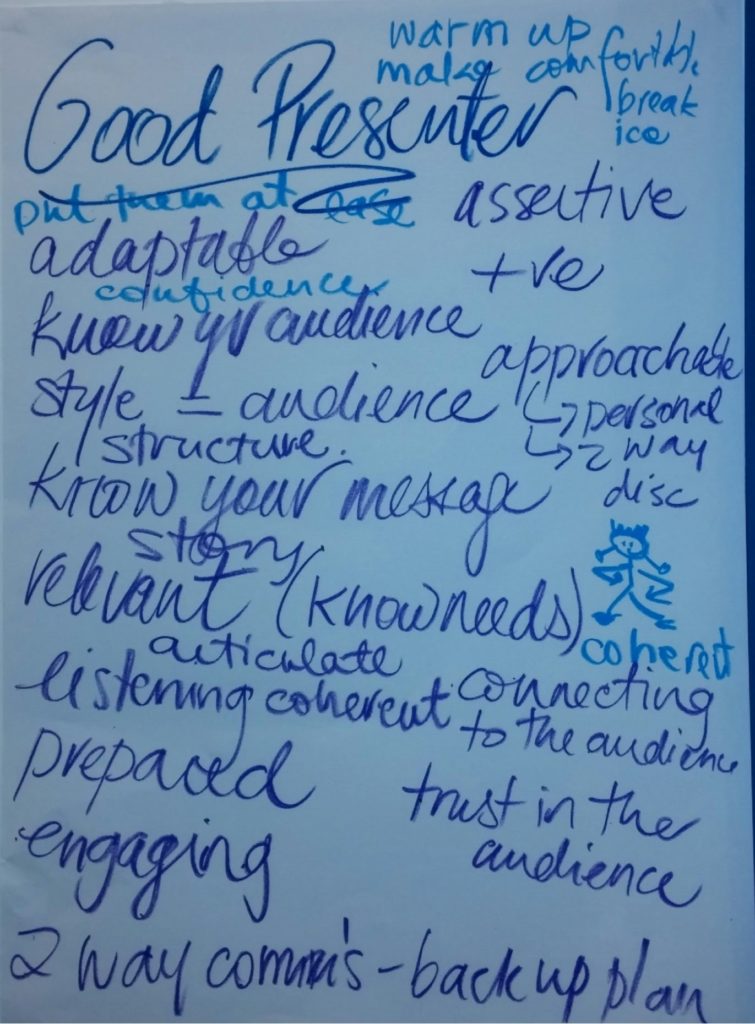Zach Mercurio has been doing the rounds of my favourite podcasts pushing his new book The Power of Mattering. Here’s one of the podcasts.
Why does mattering matter?
Why does mattering matter? This comes up when I teach the idea in corporate, but also when I speak to people around me (people who are parents, sisters, cousins, daughters-in-law). It matters because:
- People function better when they feel they matter in some way
- People are being made redundant, taking jobs below their pay grade to just keep their life and soul together, losing status and feeling the pinch of “relevancy deprivation” all over the world (they always have, but it especially hits people who have lost a job, or who retire thinking it’s gonna be their next big thing to sit on a chair and watch the world go by, but are now bored).
Why is it my job to make them feel like they matter?
Why is it our job to point our why or how they matter?
If you’re not naturally someone who wants to make others feel like they matter, here’s a good reason or two to do it. Let’s start with the pain in the neck problems:
- If they work for you, they will work harder, have fewer sick days and be less of a pain in the neck when they feel they matter
- If they are your mother-in-law, father-in-law, sister or any other family member you’ll reduce how many pains in the neck they give you when they feel like they matter
It’s also a darn fine return on investment: 10 minutes with someone showing they how and why they matter (connecting it to team purpose, connecting it to family cohesion, connecting what they do, even one tiny thing they do to who they are as a person) will pay off for months, even years in happier, more interesting and helpful people around you. And they’ll remember that YOU did that, YOU made them right with the world. That’s a big debt they will repay over and over.
It’s also a nice thing to do for someone.
Zach Mercurio says that you can assume that most people feel :
unseen, unheard and undervalued
He worked with teams of janitors in the USA and discovered that just one interaction with one person can make a difference – there’s a fab story about a leader showing one unhappy custodian the definition of custodian in the dictionary
a person who has responsibility for taking care of or protecting something
They said that hers was an important role, to take care of and protect everyone and everything. It turned her way of thinking about her job and her circumstances from her being a sad, lonely, neglected, down-trodden, bitter pain in the neck staff member to one who was proud of the work that she did, and whose behaviours mirrored that level of self-esteem.
Janitorial staff told Zach that they wanted people to do this:
don’t give me a free sandwich, remember my name and say goodbye
The podcast I’ve linked to is Getting to Yes And from Second City. Kelly Leonard interviews authors and talks to them about how improv links to the concepts in their books. In this podcast he suggests a few improv exercises that work on the significance/mattering element of interaction.
Mattering is about leading (and having people follow)
Mattering is also part of the Why Should Anyone be Led by You book and leadership program. I run this program through the human enterprise. It is always a most fulfilling program to experience (and to teach/facilitate).
Goffee and Jones talk about leadership from the angle of who follows you and why. They winnow it down to four principles (CASE), which are
Commitment (belonging)
Authenticity
Significance (synonym for Mattering)
Excitement (Motivation).
Goffee and Jones, Why Should Anyone by Led by You
An example of Mattering from my own experience
I’m learning a lot hands on about mattering as part of my social life: I sing Shanties with a group of assorted humans twice a week in Sydney’s Inner West, and represent the “Club” at Folk Festivals. Last week we felt we mattered, partly because one of our regulars brought up what we do to a parliamentarian (who he works with), and we were recognised in State Parliament.
Who matters to you who may not feel they matter at work? Who works with, for and around you who doesn’t feel seen, heard or motivated right now, and how might you help them notice how they matter? It doesn’t need to be parliamentary recognition. Maybe it’s the way they listen, how they pay attention, how they bring up issues – what is the positive thing that they do, or the big picture of what their job is that makes them matter.




